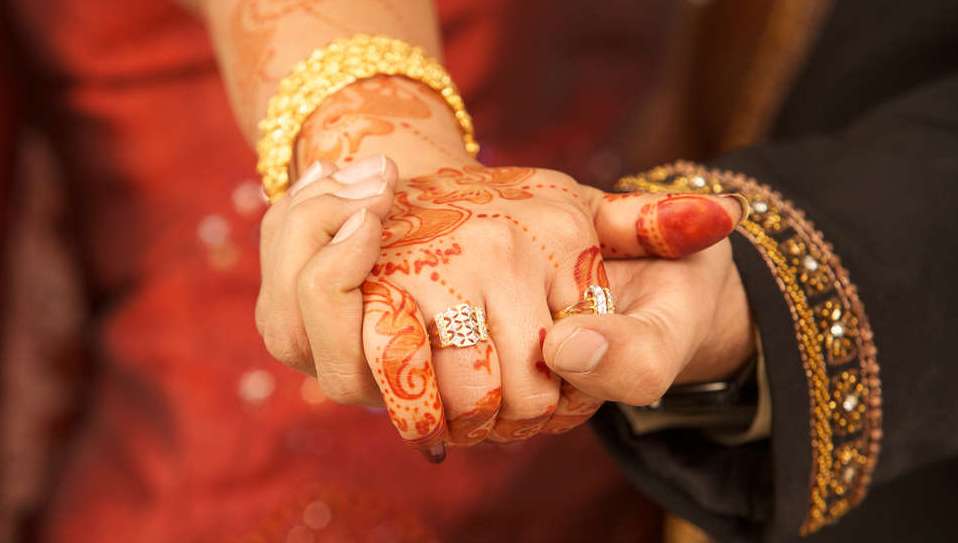The Gujarat High Court’s interim order staying certain sections of the controversial Gujarat Freedom of Religion (Amendment) Act, 2021, dubbed the ‘love jihad law’, is expected to calm passions being worked up in several other BJP-ruled states.
Legal experts opine that for the state to interfere with a citizen’s personal freedom to choose one’s life partner through inter-faith marriage is draconian and undemocratic. This interim order puts a question mark on the constitutionality of not just the Gujarat law but also similar legislation in Uttar Pradesh, Madhya Pradesh and Himachal Pradesh.
The amendment to the original law enacted in 2003 to prevent forcible conversion has seemingly insidious intentions as it has incorporated inter-faith marriage as a means of forcible conversion.
Quite pertinently has the Bench of Chief Justice Vikram Nath and Justice Biren Vaishnav ruled the law “interferes with the intricacies of marriage including the right to choice of an individual.” The court stayed some sections of the Act and said these provisions will not be applicable to inter-faith marriages till there is something to show there is force, allurement or fraud involved. The Bench’s most crucial observation is that the law puts consenting parties entering validly into inter-faith marriage “in great jeopardy.” The ambit of the amended law is such that individuals choosing their life-partners, professing different religions, through marriage on their own volition, can be targeted by too many persons who have no business to decide on the conjugal life of two adults who take a solemn vow to live together.
Section 6A of the 2003 Act places the burden of proof on the parties entering into an inter-faith marriage to prove that the marriage was not solemnised on account of any fraud, allurement or coercion. The court questioned concerns about how a common man may determine every instance of inter-faith marriage as prohibited. The Amending Act of 2021, which was brought into force through a notification June 6, presupposes a marriage itself to be a tool for unlawful conversion being effected by way of allurement, force or other fraudulent means. A plain reading of Section 3 indicates that any conversion on account of marriage is to be banned. This is considered a gross infringement of Article 21 of the Constitution of India.
The HC’s ruling that pending further hearing the rigors of Sections 3, 4, 4A to 4C, 5, 6 and 6A shall not operate merely because a marriage is solemnised by a person of one religion with a person of another religion without force or by allurement or by fraudulent means. This is in consonance with the freedom granted by the Constitution to live one’s personal life according to one’s own choice.
Moreover, the amended law seeks to circumvent the legal challenge to the charge of conversion through marriage from the consenting individuals by making them irrelevant in framing a case. It has added more categories to the list of persons who can complain about instances of “forced conversion” under Section 3A. The “aggrieved person” as per the Section could be parents, brother, sister, or any other person related by blood, marriage, adoption. Any one of them is accorded the right to file FIR with the police making a mockery of the personal freedom of two consenting individuals tying the nuptial knot. This, in effect, legitimises mob interference in an individual’s private life. By shifting the burden of proof on the individual accused of forcibly converting another person, the law gives sanctity to communal prejudice and paranoia backed by state power.
This may be considered as harassment as has already been seen in UP where some such individuals had to flee their homes in order to avoid arrest. In the case of a couple in Pune, their parents, who readily accepted their marriage, were so much intimidated by one community that they had to cancel the reception in a hotel for which invitations had been sent to friends and relatives. It was only after a state minister threw his weight behind the two families that the celebration could later take place.
Intriguingly, the added sections slap a jail term for three to five years and fine of up to `2 lakh. They enjoin on individuals to seek permission from the district administration for the marriage. There are penal provisions also for institutions and priests effecting the marriage.
The opinion of legal experts could seem acceptable that this legislative exercise is a comprehensive and well organised attempt by the state to bring religious intolerance into play in the personal affairs of individuals. Also that this goes against the fabric and ethos of the country’s secular and democratic structure. The Gujarat HC order, even though interim, should make the state give fresh thoughts to this ill-conceived design.
It is more important to make a new beginning and allow citizens to live happily and peacefully if the economic growth dreams of every Indian are to be fulfilled.
